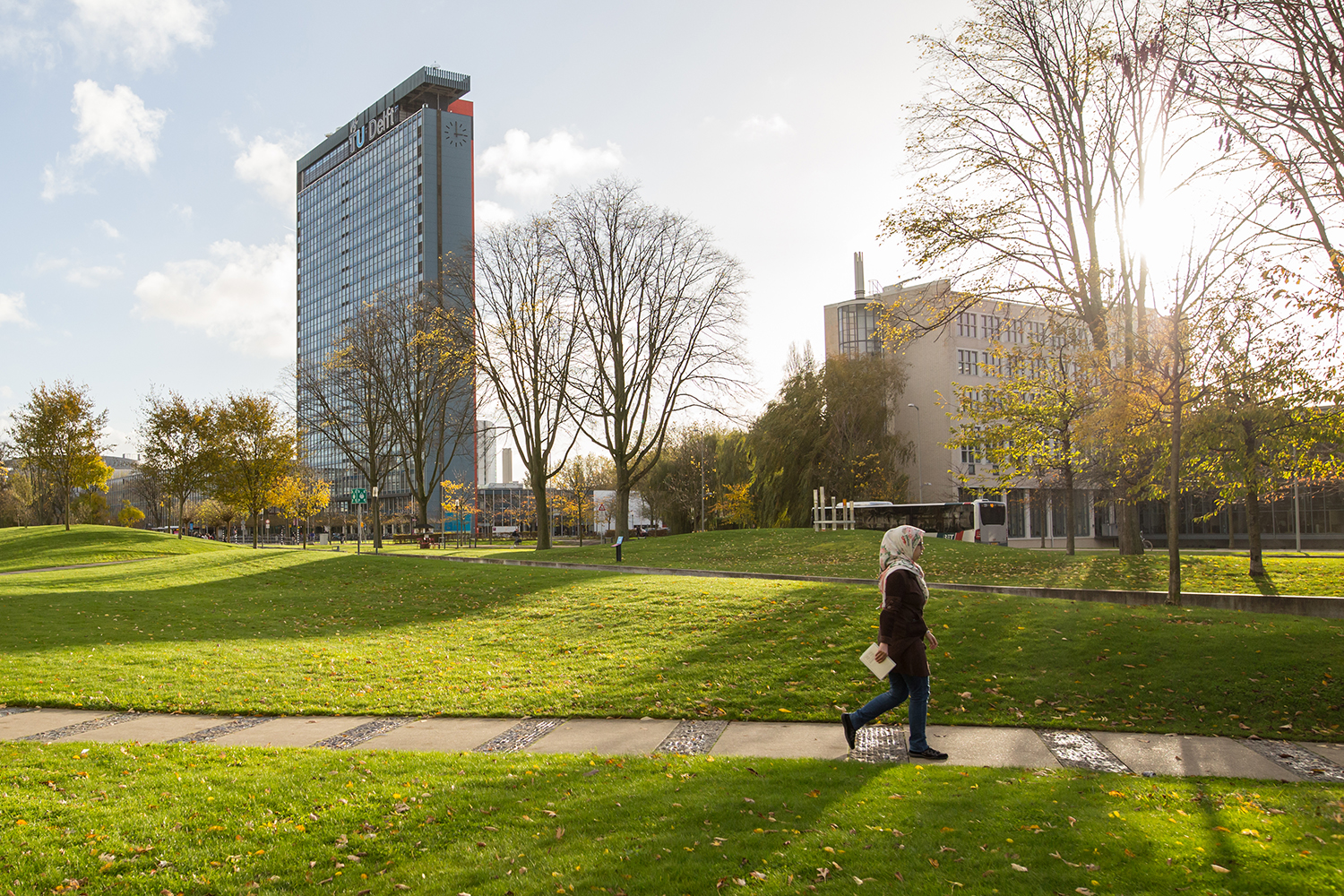TU Delft is closing the preliminary registration of students from outside Europe for the Computer Science and Engineering bachelor programme. The Electrical Engineering, Mathematics and Computer Science EEMCS Faculty is unable to handle the high numbers of students.
(Photo: Thomas Zwart)
TU Delft’s preliminary registration shows that 1,100 students have already applied to study Computer Science and Engineering. Forty-five percent of them come from outside Europe. The university expects that without closing registration, the number could easily jump by another 300.
This is such a high number that TU Delft decided to close registration to students from outside the European Union, taking effect on February 1st. Registration cannot be closed just like that to students from within the EU, including the Netherlands. EU students can register up to April 1st and Dutch students up to mid-May.
It must be noted that not everyone who registers will eventually study in Delft. Some enrol in other courses or do not have the right documents. The study programme nevertheless expects an increase in student numbers of 75 percent.
Manageable
“It is, of course, an acknowledgement of the programme’s quality,” responds John Schmitz, dean of EEMCS. “But we cannot handle so many students. With this measure we think this number is still manageable. “
It is the second year in a row that the student numbers for this programme have grown significantly. One of the reasons is language. Since this academic year, the course has been taught in English with a Dutch language requirement. Next year, the latter will not apply anymore.
This is attractive to international students. Going back to Dutch is not an option: the bachelor is not only in English to attract more international students, but all the teaching material is in English and the teachers come from all over the world. All the subsequent masters are in English and most of professional practice as well.
There are some other explanations for the rapidly growing registration numbers. The educational director had previously mentioned Brexit, American foreign policy, TU Eindhoven’s numerus fixus, the popularity of bitcoins and the increasing name recognition of TU Delft abroad.
More staff
How does the faculty absorb the large influx? “We can take several measures,” says Schmitz. “We can change the content of the programme, hire more staff and larger lecture halls. It is not easy to find IT specialists, but at EWI we have a good network that we can use. A task force has been set up to deal with the anticipated numbers of students and the Executive Board will help us to ensure it runs smoothly.”
All in all, Schmitz is not pessimistic about the coming academic year. “Looking at our experience and network, I think we’ll find a solution. We have a few more months. It is difficult to estimate how many students actually come. We follow the numbers from week to week and will respond to them accordingly.”
No numerus fixus yet
Despite the enormous growth and the stop of students from outside Europe, there is no numerus fixus for the course yet. “We will keep a closer eye on registrations and see what management measures are necessary,” says Schmitz. “I am not in favour of a numerus fixus, because there is still a shortage of people in technology. On the other hand, you cannot train the whole world in Delft either.“
Roos van Tongeren / Redacteur



Comments are closed.